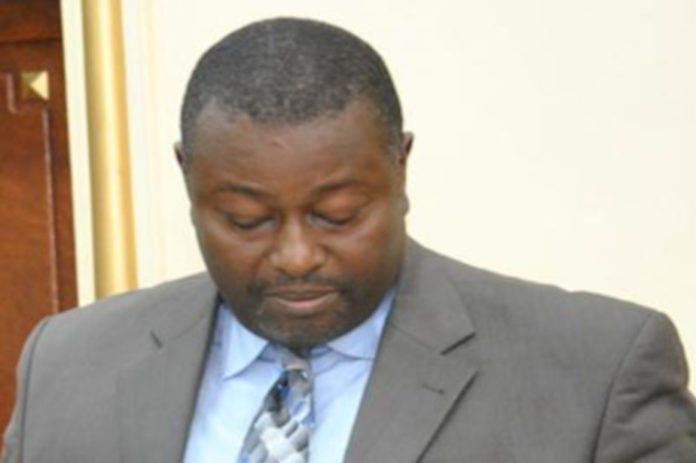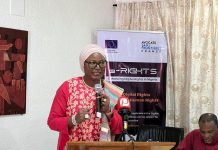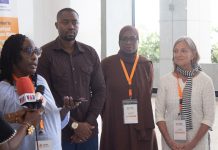By Momodou Jarju
Tasked to investigate and monitor existing and potential human rights violations in the country, the National Human Rights Commission (NHRC) has revealed that they are closed to conclusion on the ongoing investigation on the alleged death in police custody by Ousman Darboe.
The death of Ousman Darboe had sparked riot in Serrekunda in July 2019. A police station and the house of Anti-Crime Unit boss Gorgi Mboob was set on fire.
The protesters accused the anti-crime unit of killing Mr. Darboe, a marker vendor, as a result of the torture meted out to him by the police while he was under the custody of the aforesaid unit at its office in Bijilo.
The protest led to the arrest of 37 youth by the police and they were charged with 8 criminal counts including arson, unlawful assembly and rioters demolishing building. All of them have since been released and seven of them are awaiting trial.
The chairperson of the NHRC, Emmanuel Joof, said they are very closed to the end of Darboe’s investigation, while speaking before the Standing Committee of the National Assembly on Human Rights and Constitutional Matters on Monday in Banjul.
“We have engaged the Anti-Crime Unit. Our job is not just to castigate but to know what the issues are and also to tell if the police are wrong in some areas to tell them we need to rectify these,” he said.
Equally, the rights’ commission is investigating into the violence crisis of caste system in the Upper River Region (URR) to ascertain the root causes of the disturbance.
The caste system violence erupted in November 2018 at Diabugu village in the Sandu District of URR. Foroyaa reported that the disturbance was a by-product of an existing caste system which classifies some inhabitants of the village as freeborn and others as slaves.
Speaking on the caste system fracas, Commissioner Joof said: “We are also investigating… the violence in the Upper River Region. We will not only come up with a statement condemning violence and discriminating practices, but just to inform you that some two weeks ago, one of our commissioners in the name of Commissioner Imam Muktarr Baba Leigh was dispatched to the URR on a fact finding mission.”
Joof added that the findings of their reports would be given to the standing committee, saying the idea is to prevent the reoccurrence of the abovementioned violence cases, pointing the Commission also play an advisory role as a rights’ commission.
Speaking further, Commissioner Joof, also said his-led commission issued statement in response to unsavoury statements made by a Minister and an Advisor to the president at a political rally in Brikama against potential demonstrations.
Joof said the minister’s statement relating to hot water being sprayed to people and quoting April 10/11 students’ demonstration was unwise.
“We felt in the kind of democratic dispensation that we have now, it was not a very wise thing to say and we had to condemn that… I am sure some people are not happy, but this is the mandate of the national human rights commission,” he said.



















